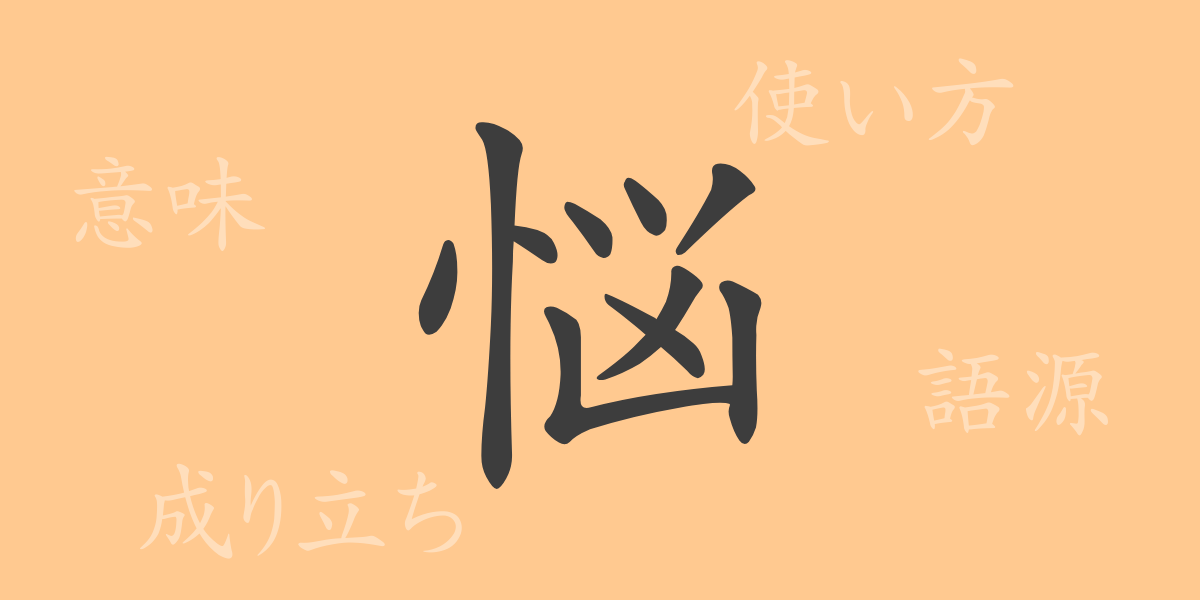In the Japanese language, there are many Kanji characters that enrich the expression of emotions and thoughts, among which ‘悩 (のう)’ is particularly suited for conveying complex mental states. This article delves into the character ‘悩’, exploring its history, meanings, usage, as well as phrases and idioms that include it, enriching our understanding of everyday language.
Origins of ‘悩 (のう)’
The Kanji ‘悩’ originated from ancient China. It is composed of ‘忄(りっしんべん)’ indicating the heart, and ‘煙’, which means smoke or steam. This combination reflects the notion of the heart being clouded with confusion like smoke, embodying the action of worrying. Having evolved over the ages, ‘悩’ has become an essential element in expressing emotions in Japanese.
Meaning and Usage of ‘悩 (のう)’
‘悩’ means to worry, suffer, or hesitate, representing mental anguish or indecision. It is used in contexts like ‘having many worries’ or ‘struggling to find a solution’. It can also express empathy towards someone else’s suffering, as in ‘sympathizing with his worries’.
Reading, Stroke Count, and Radical of ‘悩 (のう)’
The Kanji ‘悩’ has several readings and is used differently depending on the context.
- Readings: On’yomi ‘ノウ’, Kun’yomi ‘なや・む’, ‘なや・ます’, ‘なや・み’
- Stroke Count: ‘悩’ consists of 10 strokes.
- Radical: The radical is ‘心’ or ‘忄(りっしんべん)’, related to the heart and mind.
Phrases, Idioms, and Proverbs Using ‘悩 (のう)’
‘悩’ is included in many phrases and idioms that reflect the complexities of human emotions and social life. Some examples include:
- ‘悩殺’ (のうさつ): To captivate and disturb someone’s mind.
- ‘悩み多き’: Having many worries.
- ‘自悩自愛’ (じのうじあい): To comfort oneself in one’s suffering.
- ‘悩世忌憚’ (のうせきたん): To worry about worldly matters and be cautious.
- ‘悩みを解決する’: To solve a problem or alleviate a worry.
These idioms and phrases are frequently used in daily conversation and literature, reflecting facets of personal and societal life.
Conclusion on ‘悩 (のう)’
The Kanji ‘悩’ is invaluable in expressing emotions closely tied to our daily lives. Understanding and mastering this character enhances communication, allowing for deeper human connections. Furthermore, learning idioms and phrases involving ‘悩’ can enrich one’s Japanese language skills, helping us not only understand our own emotions but also empathize with others.

























